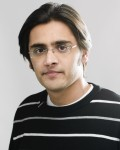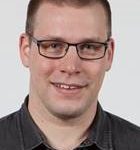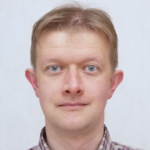EU-SysFlex webinar #1: Technical Shortfalls for Pan European Power System with High Levels of Renewable Generation
30.04.2020Events14th May 2020, 11:00-12:30 CEST
EU-SysFlex would like to invite you to a webinar on the topic of Technical Shortfalls for Pan European Power System with High Levels of Renewable Generation. This task involved detailed technical power system studies to identify technical scarcities and shortfalls. These studies build upon the work carried out in earlier tasks within WP2 in which detailed scenarios and models were develope d. The scarcities being investigated include frequency stability, voltage stability, rotor angle stability, congestion, and restoration. Studies have been performed for the various combinations of system and scarcity: of the Ireland and Northern Ireland power system (all scarcities), the Polish transmission system that is connected to an approximate model of neighbouring countries (voltage and rotor angle), the Continental Europe (frequency), the Nordic system (frequency), and a subset of the Continental European system (congestion).
The webinar will present the results of the recently published Task 2.4 report for the Continental European power system, the Nordic power system and the Ireland and Northern Ireland power system.
EU-SysFlex is a Horizon 2020 project aimed at identifying the long-term needs as well as the technical scarcities of the future power system. The objective of the project is to create a long-term roadmap for large-scale integration of renewable energy in electricity grids as well as provide practical assistance to power system operators across Europe. The project team is working on identifying improvements to European market design, regulation, operational practices and enhanced system tools. EU-SysFlex is a project made up of a pan-European consortium, crossing the industry spectrum from TSOs, DSOs, technology providers and consultants as well as research and academic institutes from 34 organisations across 15 European countries.
Speakers:
- Hassan Qazi, Senior Lead Engineer, EirGrid
- Peter Wall, Senior Engineer, EirGrid
- Josselin Fournel, Research Engineer, EDF
- Jussi Ikäheimo, Senior Scientist, VTT
- Mateusz Skwarski, Power System Analyst, PSEi
- Michał Kłos, National Centre for Nuclear Research
(Zoom information will be sent to the registered participants)
Contacts:
Sheila Nolan, Sheila.Nolan@Eirgrid.com
Kristina Kubisova, kubisova@euractiv.sk
Speakers:
Hassan Qazi works as Senior lead engineer for renewable integration within EirGrid’s innovation team and is the task leader for Task 2.4 within the EU Sysflex project. He received his PhD degree in electrical engineering from University College Dublin. Hassan has worked across both academia and industry over a number of years. His research interests include power system operation and analysis, ancillary service design and renewable energy integration
As part of EirGrid’s innovation team, Dr Wall performs studies and analysis for the DS3 programme and the EU-SysFlex project. He received a PhD in power systems from the University of Manchester and prior to joining EirGrid Peter worked as a power system consultant, focused upon renewable connection studies, and as a university researcher, working in range of fields including wide area monitoring, inertia estimation, operation of low inertia systems, intelligent controlled islanding and state estimation.
Josselin Fournel graduated in electrical engineering in 2014 from the Ecole Centrale de Lille (France). He is currently a research engineer within EDF R&D (Palaiseau, France). His main field of interest is the integration of Renewable Energy Sources in power systems, and his current research topics concern frequency stability and the connection of RES in the French distribution grids.
Jussi Ikäheimo is a Senior Scientist in the field of Energy Systems. He has worked at VTT since 2000 and has more than 15 years’ experience from energy system research. He holds an M. Sc. degree in Engineering Physics from Helsinki University of Technology in. His research focuses on sector coupling, power-to-X, demand response, district heating, electrical vehicles, heat pumps and system stability as well as participation of new types of resources in power and reserve markets. He has also been active in international collaboration networks such as IEA DSM.
Mateusz Skwarski was born in Poland, in 1993. He received (with honors) the BSc and MSc degrees in electrical engineering from the Faculty of Electrical Engineering, Warsaw University of Technology (WUT), Warsaw, Poland, in 2017 and 2018, respectively. Since 2018, he has been employed with the Research and Development Centre in PSE Innowacje sp. z o.o. as an power systems analyst. He is currently working toward the PhD degree with the Electrical Power Engineering Institute, WUT. His research interests include power systems and especially power system stability analysis.
Michał Kłos holds a master’s degree in physics from the Jagiellonian University in Krakow. Since 2012 he has been working for the National Centre for Nuclear Research, cooperating mainly with the Transmission System Operators. His area of interest includes market design, market simulation, operations research and data exploration. He has been working as an expert and a manager in multiple projects. Among the most notable contributions there are: building a clustering algorithm used in the First Bidding Zone Review by ENTSO-E, designing optimization engine for the Polish Emergency Demand Response Program (competitive tendering and operational choice of offers), designing the modeling chain and managing the inter-TSOs long-term market study based on Flow-Based Market Coupling and providing analytical background and solutions for implementation of cost sharing of Redispatching and Counter-Trading in CCR CORE.





